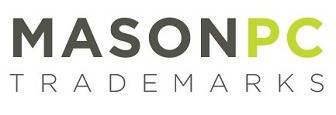You have an awesome business idea and a great name to match. It’s the perfect blend of creative and suggestive, and it speaks volumes to your target customers. Someday it will be a household name. You’re already envisioning it on your business cards, website and storefronts.

Stop! Wait! Whoa Nelly!
Do you know if that name is available?
Before you commit (and fall any more in love) with your fabulous new business name, let’s pause and do a few business name searches. Maybe the name isn’t capable of protection under Canadian law. Or maybe someone else thought of it first. It happens.
It can be heart-breaking to learn (after you’ve already invested financially and emotionally) that the name you love just is not going to work. I’ve been there, and it’s ugly. I’ve had to walk into a boardroom filled with executives and large-scale signage mock-ups to explain why the name painted all over those signs was not registrable as a trademark in Canada, and even worse, that using it could lead to a trademark infringement suit they were unlikely to win.
I want to help you avoid this position.
So, before you get too attached, lets walk through a few business name searches that will help you find out if your name is available. These searches will take about an hour of your time, and they will cost you almost nothing.
But one word of caution. These searches are not meant to replace the detailed trademark searches done by a lawyer for the purposes of a trademark availability opinion. They’re just a precursor, meant to help you identify obvious prior uses of your name. A professional search will cover trademark and trade name registries and other private databases in much broader terms than any searches we can do in an hour.
But once you’ve done these basic searches, you can invest in professional search to gain a greater level of assurance that your name is available and unlikely to lead you down a rabbit hole of potentially costly legal troubles.
Let’s get started.
Canadian Trademarks Register
The Canadian Intellectual Property Office (CIPO) Trademarks Register includes all registered and pending trademarks in Canada. Searching this database is the best way you can find out if a name is available and registrable as a trademark in Canada. A CIPO examiner will search this database for potentially confusing marks to raise as obstacles to new trademark applications. To an owner, this search is one of the main benefits of a registration, since registered trademarks are raised to prevent future confusing marks from attaining registration in Canada. On the flip side, to an applicant, the examiner’s search can work against you by preventing your application if there is a confusing mark already on the register.
A register search is also important for identifying marks that are not yet in use in the marketplace. A trademark application can be filed before there has been any use of the trademark in Canada. In fact, you can have a pending application for up to six-years before you have to start using the mark in Canada. A savvy business owner will reserve their rights to a name long before they actually start using it by filing a trademark application. That name won’t come up in any internet searches because it has no commercial or internet presence, yet the trademark application could still prevent you from registering and using a similar name in Canada.

The Trademarks Register is searchable by a range of fields including trademark, owner and goods or services. A solid beginning strategy is to search your proposed name in both the trademark and trademark description fields. You can also try searching variations in spelling, and if your name contains several words in combination, try searching the first or most distinctive word by itself.
If you get a long list of marks in your searches, you can also narrow the search results by Nice Classification, which is the internationally accepted system of grouping goods and services. For example, if you’re starting a craft brewery, the most relevant Nice classes are Classes 32 (beer and non-alcoholic beverages), 33 (wines and spirits), and 43 (providing accommodations, food and drinks). A list of all Nice Classes is available here.
Nuans Report
A Nuans reports list similar registered business names, except for names registered in Quebec. You can order a Nuans report direct from the government of Canada, or any number of online companies.
When you get the Nuans report, you will see your exact name in the first line. Don’t panic, this is your entry. If the report lists your exact name or something very similar further down the list, it could indicate that you will have difficulties registering your name with the applicable provincial or federal registry (when you incorporate or register your business name). It could also mean that the same or a similar name is already in use in Canada, and you should investigate the risk of confusion with each one, even if just by running GOOGLE searches.
Online Dictionaries
Quick searches of online dictionaries such as Dictionary.com, Urban Dictionary and Wikipedia, will tell you if your business name has any descriptive meaning in relation to your products or services, whether intentional or not.
This information is important because descriptive words are generally not capable of protection under Canadian law. You can sometimes get around this rule if you combine the descriptive words with other distinctive words or designs, or if you have used the descriptive words extensively and exclusively so that they have acquired a secondary meaning in relation to your business.
Searching dictionary definitions will alert you to potential registrability and enforceability issues in respect of your name. And wouldn’t you want to know if you can protect a name before you start using it and wasting money on a trademark application?
Domain Names
In this day and age, every business needs a website, and it just makes sense for your domain name to consist of your business name. Searching whether your proposed name is available as a .COM and a .CA is, therefore, a must. If these domain names are available, register them immediately. A short 1-year term is inexpensive and will put a hold on the domain name for your future use. If you ultimately decide on a different name, you can always let the registration lapse.
If the .COM or .CA of your business name is not available, take a close look at how it is being used. Is it being used by a competitor or potential supplier? If you think your customers would visit that website and be confused, you could be risking lost future revenues when your customers can’t easily find you online. Even worse, you could be risking a trademark infringement or passing off suit from that website owner.
Internet

The Internet is the largest publicly available database of words and terms in use anywhere in the world. Running GOOGLE searches for your name, or your name along with the generic name for your products or services, should give a good idea in the first couple of pages of results if the name is already in use. Any online references to a name can be examined closer to see if they relate to a competing or related business or product, or if they even show commercial activities carried on in Canada. The internet may be borderless, but trademark rights are only enforceable in the country or countries where there is actual trademark use, meaning where trademarked products are sold, or where services are provided. The use of a mark in Australia, for example, may not affect the legal availability of that name for your use in Canada.
Analyze search results
For every trademark or name reference that comes up in your searches, ask yourself how the reference affects your marketing plans. Is the name or mark used by an actual or potential competitor? Or is it used in a related or complimentary field? Are consumers likely to think that your businesses or products are in some way related? Or would the reference create a negative connotation for your name?
If you answer yes to any of these questions, the simple solution is to re-think the name. If your preliminary searches have identified obstacles, it is quite possible, even likely, a comprehensive search will only confirm the name is not available. It’s so much easier and a lot less expensive to start with a name that has no potential conflicts or risks of trademark infringement.
Protect your future use
Once you have a great name and you know it is available for your use, set it up for strong legal protection by filing an application to register it as a trademark. There are so many reasons that trademark registration should be part of a successful business plan. That’s a whole subject on its own that you can read about here.
But I will say this about filing an application to register your name as a trademark – you won’t regret filing the application the minute you have determined that it is available. Remember, you can file an application before you have started using the name in Canada. This application stakes your claim to use it anywhere in Canada, and it will protect your right to use it over others who would have a similar intention.
If you have any questions about these searches, or you encounter difficulties when searching your business name, please shoot me an email or book a free 30-minute consultation.
I’d be happy to provide you with more guidance.


